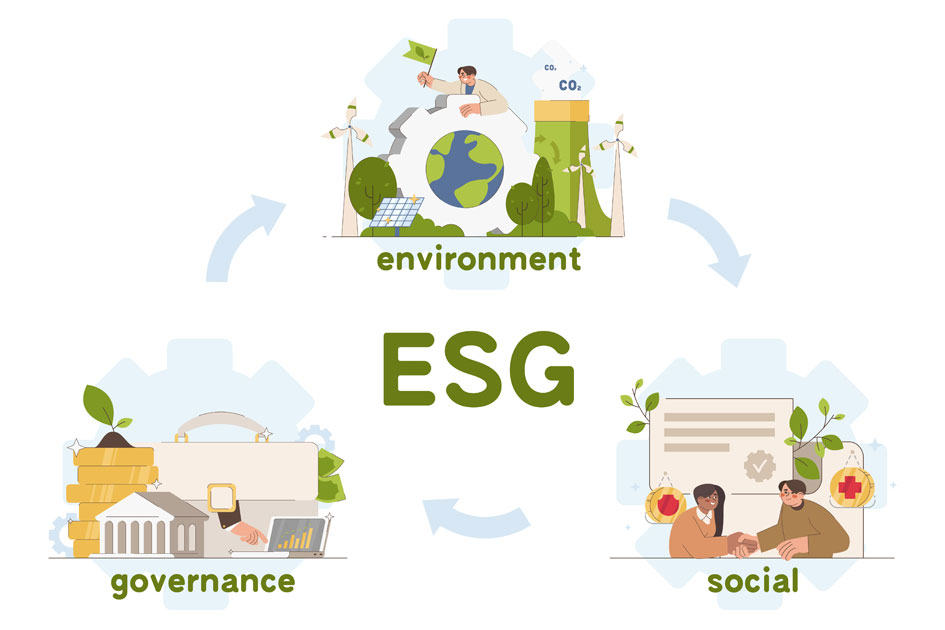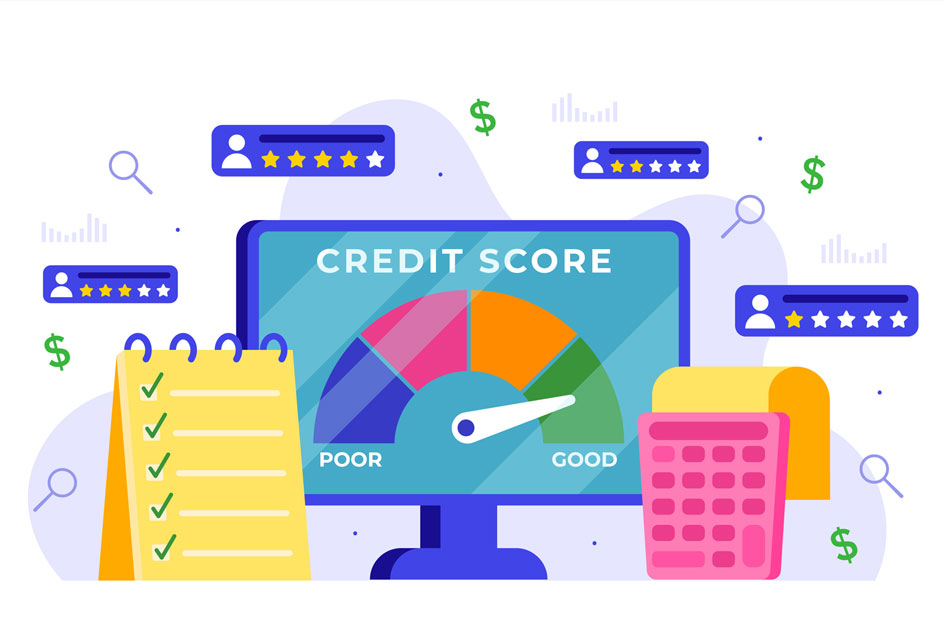Environmental, Social, and Governance (ESG) investing has gained immense interest from investors in the last couple of years, who want the value in their portfolios to be reflected. Environmental, Social, and Governance (ESG) mutual funds also invest in companies that are responsive to a variety of ESG criteria, including environmental sustainability, social responsibility, and good governance practices. These funds provide competitive financial returns with a positive impact on society.
How ESG Works:
Environmental factors are considered with a view to how the operations of a firm affect the environment. These include carbon emissions, resource depletion, and waste management.
Social criteria are seen in how a firm manages relations with its employees, suppliers, customers, and local communities. Issues in this category include labor practices, workplace diversity, consumer protection, among others.
Governance pertains to leading, ethics, and compliance. It ensures transparency and accountability of the company in the light of law and regulations. Typical motivations for investors who opt for ESG mutual funds are usually a blend of desires for financial returns and an effort to square their investments with personal values. In general, ESG mutual funds track along with or tend to outperform traditional funds, in large part as more consumers and companies prioritize sustainability.
In short, ESG investing is right for you if you care about climate change, social equality, or corporate governance. Its core objective is to give a competitive edge to people who believe that climate change, social inequality, or corporate governance is important enough to be considered an essential factor in the kind of companies whose stocks mutual funds invest in. They probably won’t beat the market every year, but they have long-term growth potential while supporting companies that truly strive to make a difference.


Benefits of ESG Mutual Funds
- Harness your ethical passions and feelings’ rights:Investors are given the ability to invest in them to `feel their investments are a reflection of their standards.`
- Investors are given the ability to invest in them to `feel their investments are a reflection of their standards.`
- Risk Management: Especially in carbon dioxide emissions regulations, a strict product liability regime, and environmentally induced conditions on the social front, the integration of non-financial factors in the ESG analysis criterion might lead to a lesser volatility of the portfolios than before.
- Especially in carbon dioxide emissions regulations, a strict product liability regime, and environmentally induced conditions on the social front, the integration of non-financial factors in the ESG analysis criterion might lead to a lesser volatility of the portfolios than before.
- Efficiency in the long haul:The situation may be that organizations, which comply with ESG standards long-term, will grow, will be more attractive to clients, will get more talented workers away from the competition, and will raise more capital.
- The scenario for businesses that have ESG values, is that they are the best fit candidates for long-term, sustainable growth, hence they can attract customers, talent, and investors.
- Market Demand and Growth:Trends in consumption that promote corporate social responsibility and sustainability created by customers and investors can influence the results of ESG funds.
- Trends in consumption that promote corporate social responsibility and sustainability created by customers and investors can influence the results of ESG funds.
- Positive Societal Impact:Enlarges the rate and outcomes of Sustainable Development Goals, sustainability issues, and corporate governance and thus boosts CR and entrepreneurial environment.
- Enlarges the rate and outcomes of Sustainable Development Goals, sustainability issues, and corporate governance and thus boosts CR and entrepreneurial environment.
Challenges and Considerations
Diversity in Definition and Practice:
As a term, ESG is quite broad in its scope and sometimes vague. Funds may incorporate different criteria and use different benchmarking approaches, which makes it difficult to make the possible comparisons.
Inconsistency in Performance:
In spite of a number of ESG funds having competitive funds, returns are generally dependent on fund management, sector distributions, and other variables such as prevailing conditions.
Increased Cost:
ESG funds tend to charge more due to the presence of additional studies and screening leading to an increase in the expense ratios.
Risks of Greenwashing:
There also are funds that might consider themselves ESG – funds without actual meaningful adherence to such principles. Active engagement is needed to avoid this.
Lack of Reliability and Consistency:
The elastic presence of ESG as a concept results in information about it and its indicators being often incomplete and missing common benchmarking.
ESG Mutual Funds that have grown Popular over the years
Notable trends notwithstanding, Sovereign ESG mutual fund market is highly dynamic and still a multitude of funds can be highlighted with great results:
Vanguard ESG US Stock ETF (ESGV):
Concentrates on ESG eligible large-, mid-, and small-sized U.S. companies.
Pax Global Environmental Markets Fund (PGINX):
Seeks to invest in firms which are tackling environmental problems in multiple countries.
iShares ESG Aware MSCI USA ETF (ESGU):
Invests in a passively managed portfolio of U.S. corporations with favorable ESG attributes.
TIAA-CREF Social Choice Equity Fund (TICRX):
Active weights U.S. and foreign equities with good corporate social responsibility.
How to Invest in ESG Mutual Funds
Define Your ESG Priorities:
Identify the ESG (Environmental, Social, Governance) parameter on which you will place the most emphasis. This could be climate change, social responsibility issues, ethics in business, etc.
Research and Compare Funds:
Hell, use Morningstar, ratings from MSCI-esg or Sustainalytics, anything to benchmark all the mutual funds that you intend to invest on based on their criteria, performance, fees and holdings.
Understand the Fund’s ESG Strategy:
Explain whether the fund practices positive screening, negative screening or both approaches. Positive screening is the process of investing in companies with strong ESG performance, negative screening on the other hand is investing in companies with poor ESG performance.
Evaluate Performance and Fees:
Assesses the performance of a fund relative to the benchmark and expense ratio along with 12b-1 fees and other costs.
Review Holdings and Sector Exposure:
Assess the securities owned by the mutual fund and examine whether the composition is compatible with your ESG goals and needed level of diversification.
Consult a Financial Advisor:
Take some expert opinion on whether the ESG mutual fund is adhering to the overall investment plan and risk profile you have.
Conclusion
Mutual funds are one of the most popular investments today due to their diversity, professional management, and growth potential. Whether you pick an active or passive fund, or compare it to an ETF or align it with the ESG social fund, mutual funds have options for all. Armed with this knowledge, you will be in a much better position to make more knowledgeable decisions that align and fulfill your financial goals.
And never forget to research the investment and your risk tolerance, not to mention consult a professional for that extra, much-needed financial counseling if needed. With proper care, mutual funds will prove themselves to be an excellent help in eventually achieving your financial goal.







